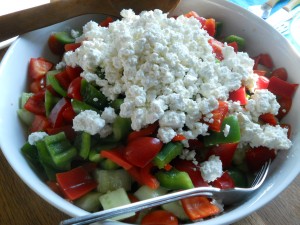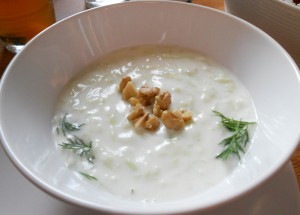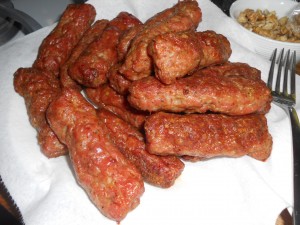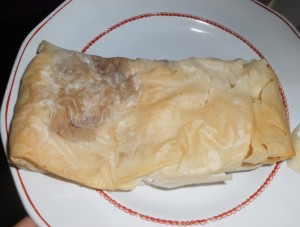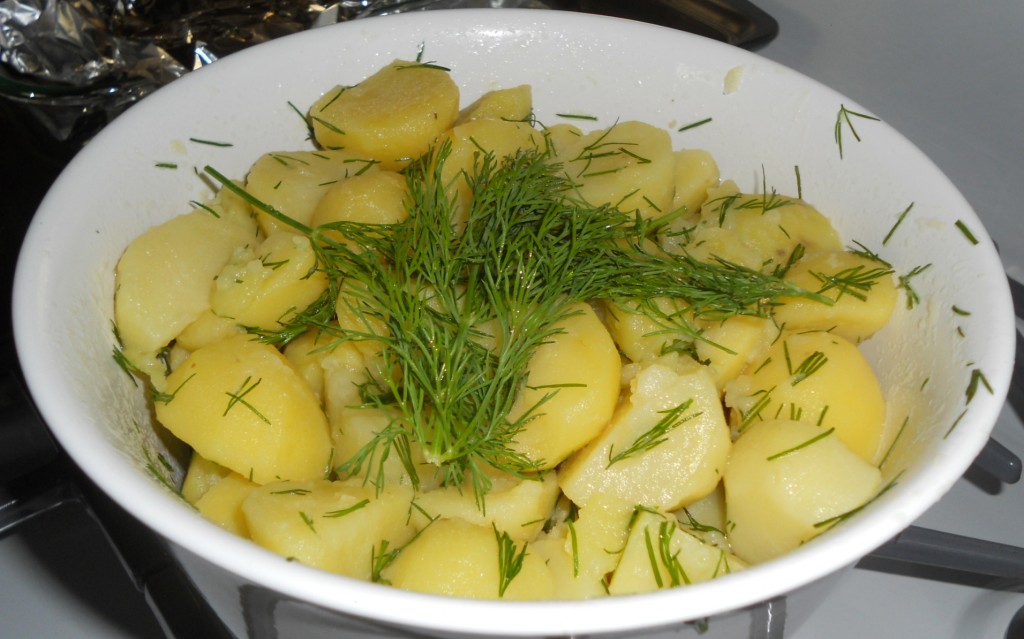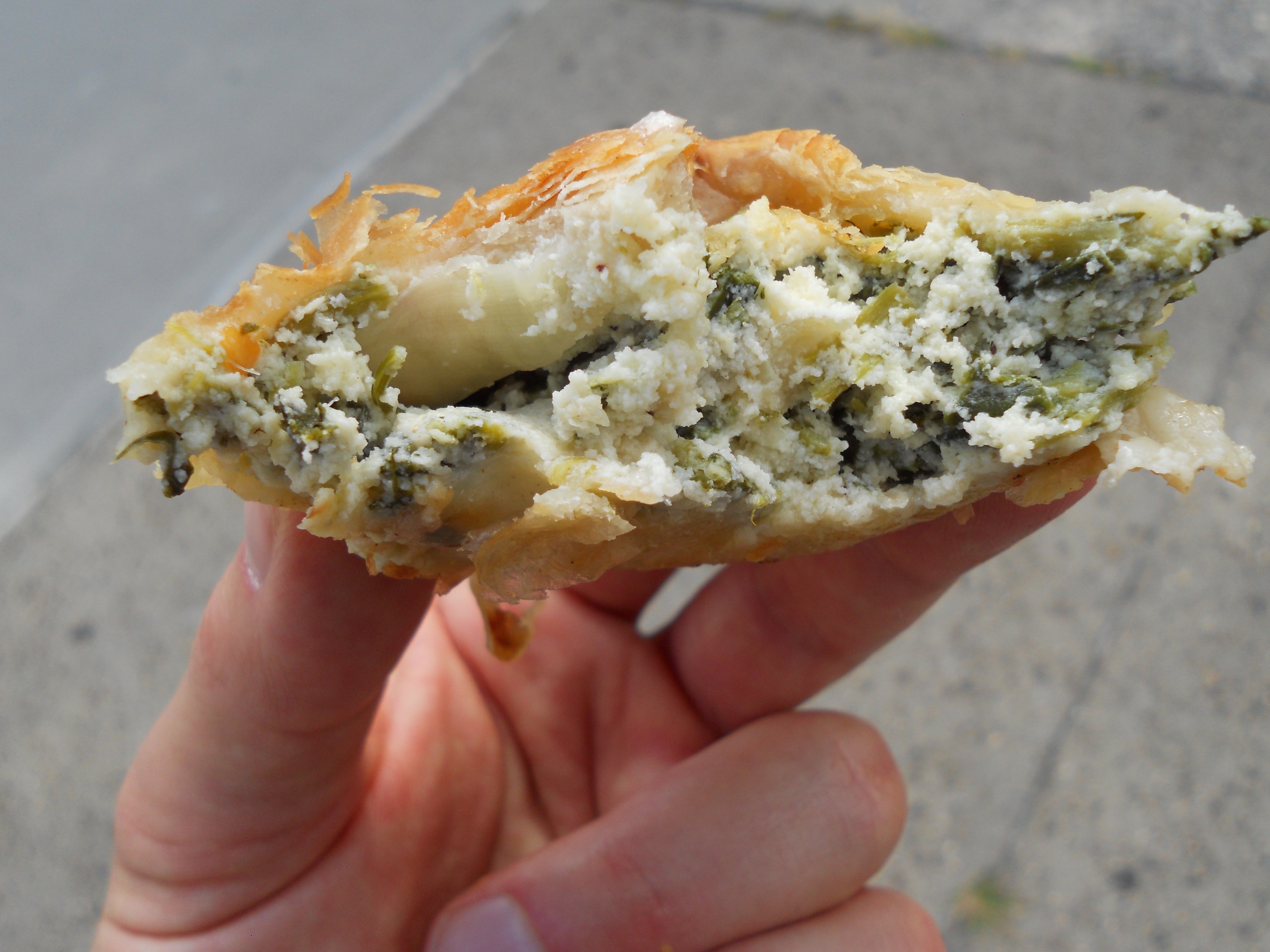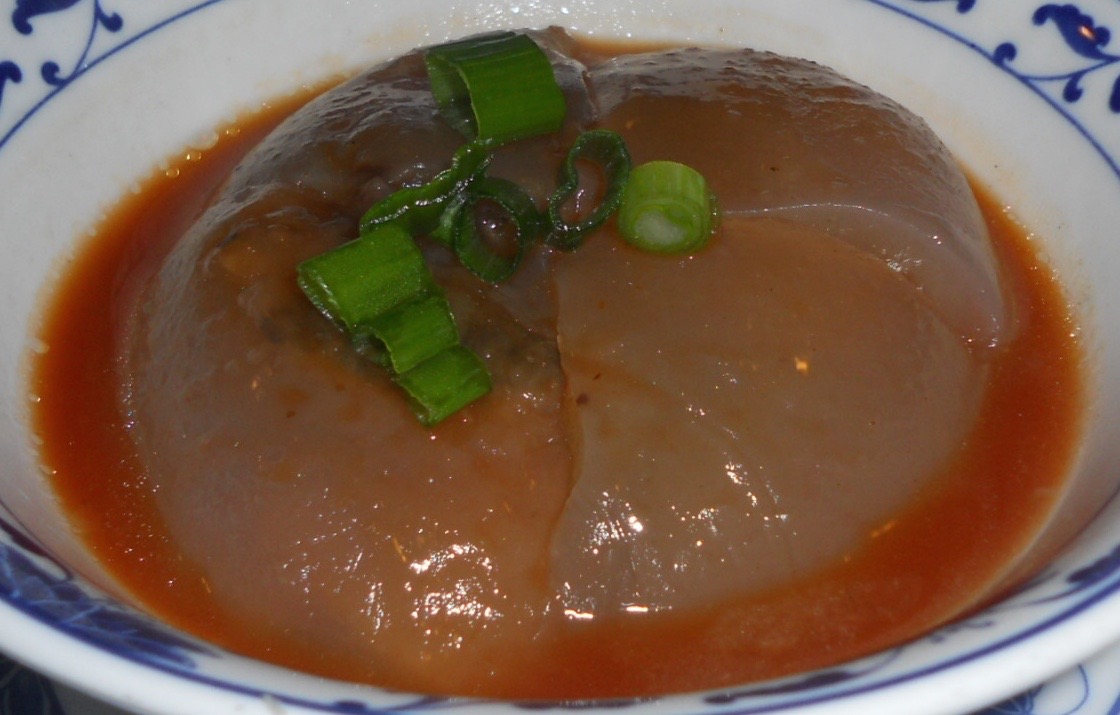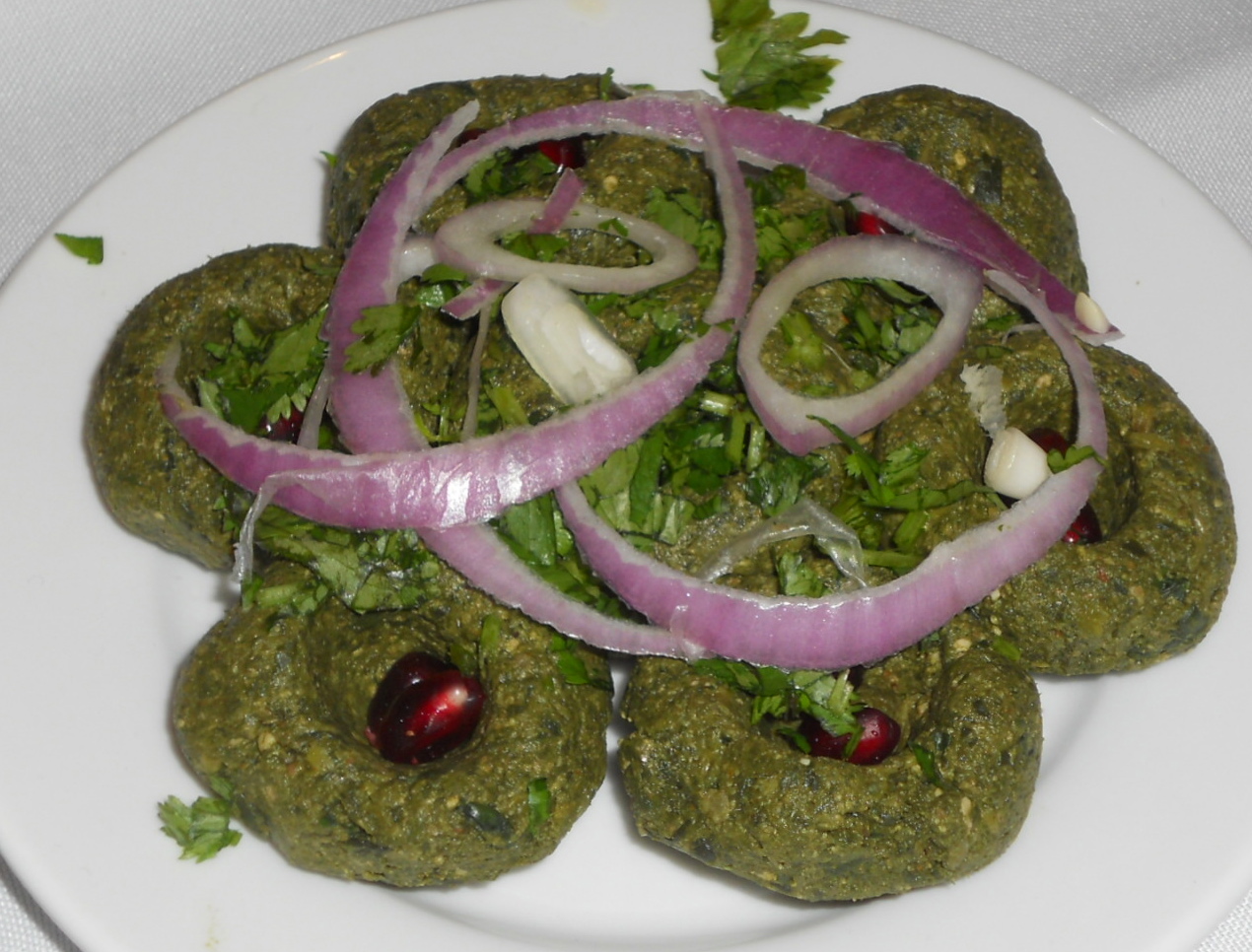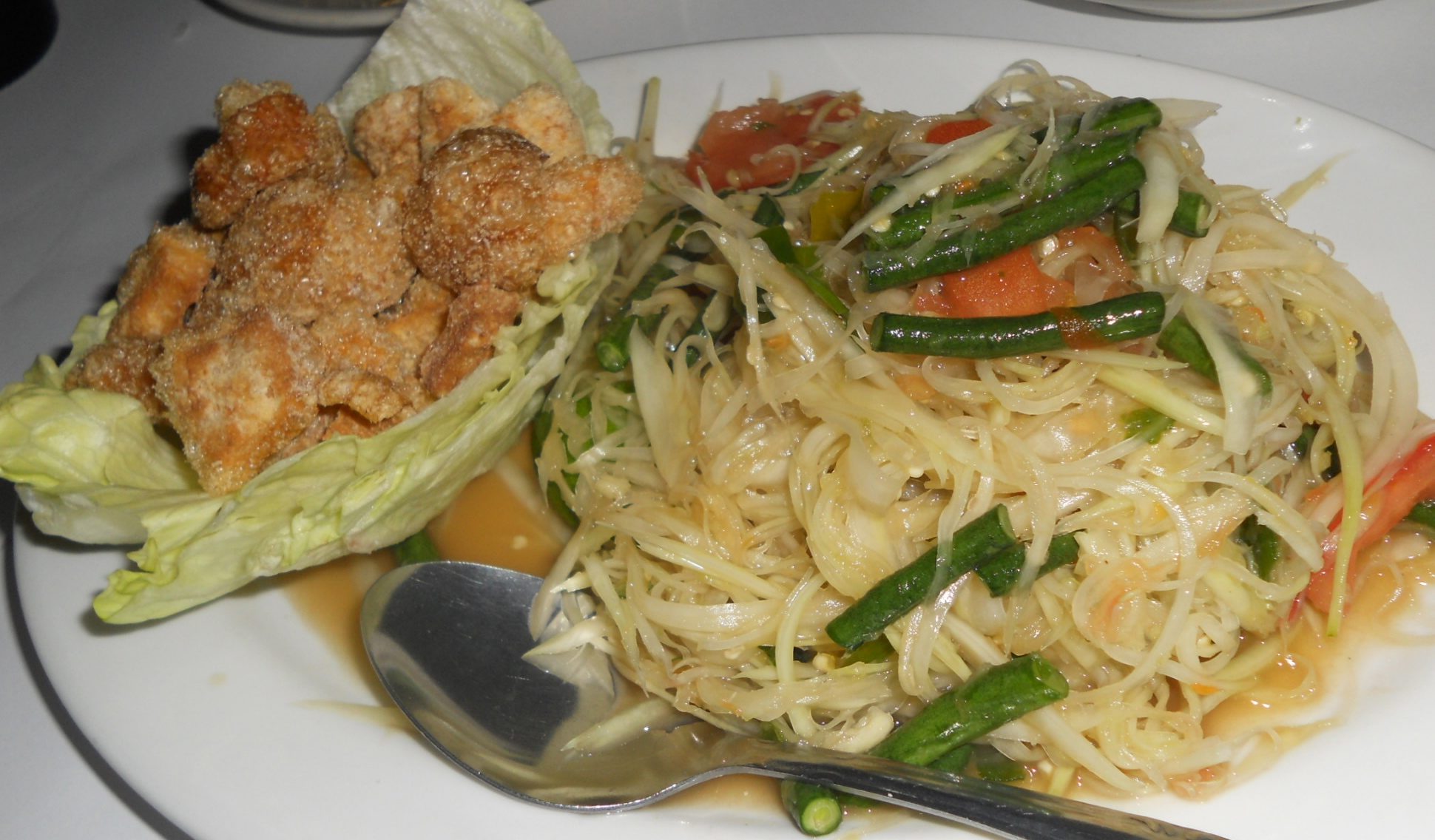You might have noticed that I really like food. You might also have noticed that I very rarely eat home-cooked meals.
For those of you who don’t live in Manhattan, here’s some exciting news: this island is effing expensive. So we rented a slightly flawed apartment to save money: there’s no direct sunlight and no kitchen, just a microwave, a cranky hot plate, and a tiny sink (9”x11”) that’s barely larger than a standard sheet of copy paper.
(Sacrificing a kitchen is arguably worth it—if you live in NYC and I tell you how little we pay in rent, you’ll want to kill me out of jealousy. If you don’t live in NYC and I tell you how much we pay in rent, you’ll want to kill me, because I’m clearly too stupid to deserve to live.)
You can do some pretty cool sh*t with a microwave these days (like marshmallow peep jousting), but eating out is usually a better option than eating frozen burritos or microwave-singed marshmallow peeps. Legit home-cooked meals are special treats, usually enjoyed only when we take a trip out to “the countryside”.
Living in Midtown Manhattan, we think of places like Brooklyn and Iowa as “the countryside.” They have quaint, kitschy country stuff like backyards. And direct sunlight. And kitchens.
Lucky for me, Phil The Bulgarian, an old pal from high school, lives in “the countryside” in Brooklyn, and he and his wife (we’ll refer to her as Jasmina The Almost-Bulgarian) generously agreed to prepare a home-cooked Bulgarian meal for us. Home-cooked food?!? Truly exotic, even if it doesn’t come in a ziplock bag.
We warmed up with tarator, a deliciously fresh yogurt-cucumber soup, sprinkled with dill and walnuts. It reminded me of Azeri dovga, except that the yogurt wasn’t fermented and the soup lacked dovga’s fizzy fermented taste… and the walnuts also added a nice crunch. We followed the soup with shopska salad, made from a mix of green peppers, red tomatoes, and white feta cheese, mimicking the colors of a dill-sprinkled Bulgarian flag. (No disrespect meant toward Bulgaria or any other country, but I would probably eat more flags if they were sprinkled with dill.)
For our main course, Phil The Bulgarian and Jasmina The Almost-Bulgarian spoiled us rotten with some incredibly tasty kebapche (Bulgarian sausage, similar to cevapi served throughout the Balkans), with a beautifully crispy casing—definitely a huge step up from the cevapi I’ve eaten in Bosnian and Serbian and Montenegrin places. We also enjoyed a heap of golden potatoes (kartofki), roasted with dill, based on a recipe from Phil The Bulgarian’s father.
I could have happily chomped on the kebapche and dilled potatoes all night, but our Bulgarian hosts outdid themselves by feeding us an amazing dish with a brief, thoroughly anglicized, easy-to-pronounce name: Pulni Chushki na Lili Milanova. I think the translation is “stuffed peppers with a few extra words.” The peppers were stuffed with a dill-egg-feta cheese mixture, and they were extremely lovable. So lovable, in fact, that I’m posting the recipe over here—and that’s a United Nations of Food first, since I’m generally way too lazy (and kitchen-deprived) to bother collecting recipes.
Jasmina The Almost-Bulgarian even spoiled us rotten with an amazing dessert called banitsa, a distant cousin of baklava, consisting of a tasty pumpkin filling baked inside a soft pocket of phyllo dough. I thought it was absolutely delicious, though Jasmina The Almost-Bulgarian poked at it apologetically before the meal: “Sorry, it looks like crap—I’ve never made it before, and I don’t know how to fold the phyllo dough.” She even asked that I refrain from publishing the recipe, “for fear of a backlash.”
If the delicious banitsa is Bulgaria’s version of a backlash-worthy kitchen disaster, then Bulgaria must be pretty damned awesome. Someday, when (if?) I ever grow up, maybe I’ll have my own kitchen in the “countryside,” just like Phil The Bulgarian and Jasmina The Almost-Bulgarian. And if my kitchen “failings” look anything like theirs, I’ll be a happy, well-fed man.


